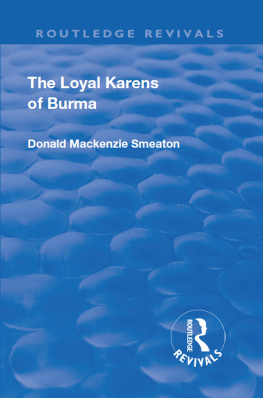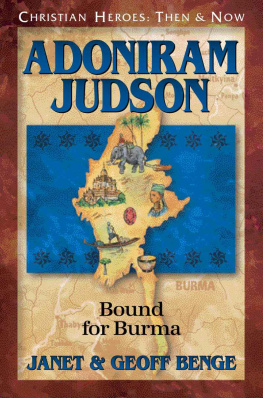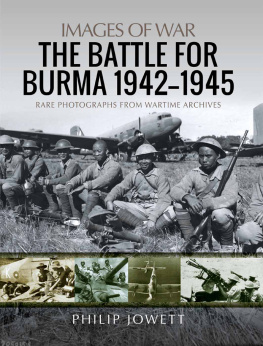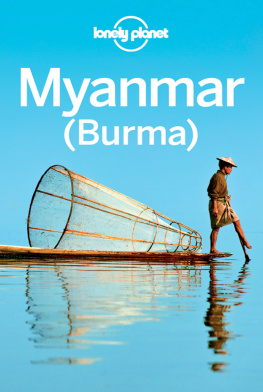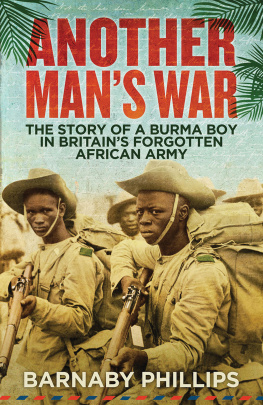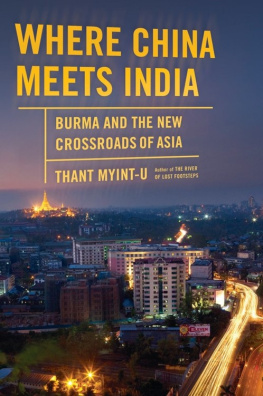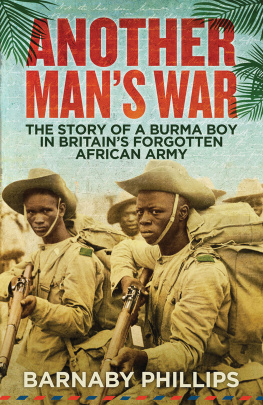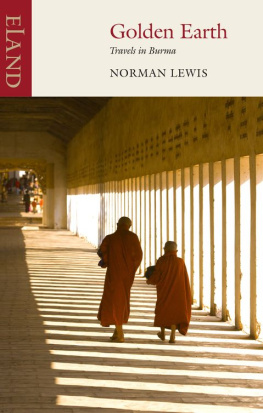PROBABLY few of those who have read the newspaper telegrams and narratives of the rebellion in Lower Burma, are aware that a neglected little nation called Karens, inhabiting the mountains and forests of the province, have been che staunchest and bravest defenders of British rule. But for the loyalty and courage of the Karens, the rebel Burmese and Shans would, in all probability, have overrun Lower Burma. Had the Karens joined in the insurrection, the Queens Government would, in all probabilityfor a time, at leasthave ceased to exist; communications with Mandalay would have been cut off, and the invading force would have been hemmed in by an armed people fired to fierce resistance by our reverse in the south. What catastrophe might have occurred it is impossible to say. But it is not unreasonable to predict that the disaster would have had its contre-coup on the far-away north-west frontier, and that the re-conquest of Burma might have been rendered impossible by the withdrawal of all available troops to repel aggression elsewhere. Reporters of events in Burma have been careful to avoid using the ugly word rebellion in describing the disturbed condition of the province, and the term dacoitywhich means robbery generally accompanied by murderhas been almost invariably used. It should be clearly understood that the spirit which is moving the turbulent Burmese is quite as much a spirit of revolt as a spirit of plundering. Let those who urged the annexation of Upper Burma take this to heart and look out for the future. The spectacle of a revolt in the province which we have ruled for over thirty years is not encouraging to those who have on their hands the task of reducing Upper Burma to submission. The second Burmese war, in 185253, was a war of annexation. The third Burmese war, in 188586, is a war of annexation and of extinctionextinction, in the peoples eyes, both of nationality and of religion. The Mandalay campaign was undertaken with a light heart, in the belief that the people of Upper Burma would welcome us with open arms. Events have proved how ill-founded this belief was. While our army was far away north, on the Irrawaddy, a real campaignand a bloody onewas being prepared for us in the low country. The people do not want us any more than they did thirty years ago. They rose to throw off our yoke, and they are still carrying on a guerilla warfare against us. They winced under the pinching and squeezing of the kings officers, but none the less they loved the king. He was the head of their nation, the fountain of all the honours they cared for, and the defender of the Buddhist faith. It has frequently been said that there is no patriotism, no national sentiment, among the Burmese. Those who know the country best will, I am convinced, hesitate to admit this. The inhabitants of Lower Burma have undoubtedly prospered under our government during the past thirty years. They have had good harvests, growing markets, and brisk trade. All this they readily allow; but they never bargained for the overthrow of their ancient monarchy. They were proud to know that a Burman king somewhere ruled a Burmese people; and the allegiance of their hearts was given to the kingnot to the British Government. Say nay who may, the Burmese people bitterly resent the overthrow of their monarchy. It has also been urged that the war has no religious aspect whatever. This assertion, like many others, is misleading. The Burman cannot conceive of a religion without a Defender of the Faitha king who appoints and rules the Buddhist hierarchy. The extinction of the monarchy left the nation, according to the peoples notions, without a religion. We have overthrown the king and destroyed all traces of the kingly rule. Naturally they look upon this as the destruction of their nationality. Whether we have acted wisely history will decide. The step has, however, been taken, and we dare not now go back. We have to govern a turbulent people inhabiting a vast territory of hills and plains, forests, jungle, and swamp, impassable to troops during more than half the year. Vigour, tact, and skill are much wanted in the administration.* But vigour, tact, and skill will be of little avail if we have no source of support in the country itself on which we can rely. The Karen people are at heart loyal to us, and they have proved their loyalty by freely shedding their blood in defence of our rule and in the cause of order. In the face of neglect and discouragement, they have served us nobly and well. The wave of lawlessness and rebellion which swept over Lower Burma immediately after the Mandalay campaign, and which has not yet subsided, was foreseen and foretold by one of the leading Karen missionaries. He warned the authorities that danger was brewing in our own province, and offered to raise a Karen contingent which would keep the rebels in check. The local authorities, however, appear to have ignored the danger, and refused the offer with something akin to a sneer, with what results we now know.
Until, in sheer despair, the Karens rose to defend their own hearths and homes, the Burmese rebels and robbers had it all their own way. Troops could not penetrate the dense jungles; and the Burmese police were cowardly where they were not disloyal. The Karens are splendid forest trackers and ruthless pursuers. When they rose vengeance was swift. They tracked the raiders to their hiding-places, attacked and routed them, hunted the fugitives from jungle to jungle, and cleared the frontier. There can be no question that, with the peace of the entire province at stake, it would have been the boldest and the best policy to array the loyal Karens, at the very outset, against the rebel bands. A body of five thousand Karen skirmishers with General Prendergasts invading force would have cut off the retreat of the Burmese troops, and would have checked the irruption of armed bands into Lower Burma. Much of the anarchy which has disgraced our rule would thus have been prevented. The story of the deeds and sufferings of the Karens in defence of the Queen-Empresss Government in Burma is a deeply interesting one, and deserves an honoured place in the records of the empire.



